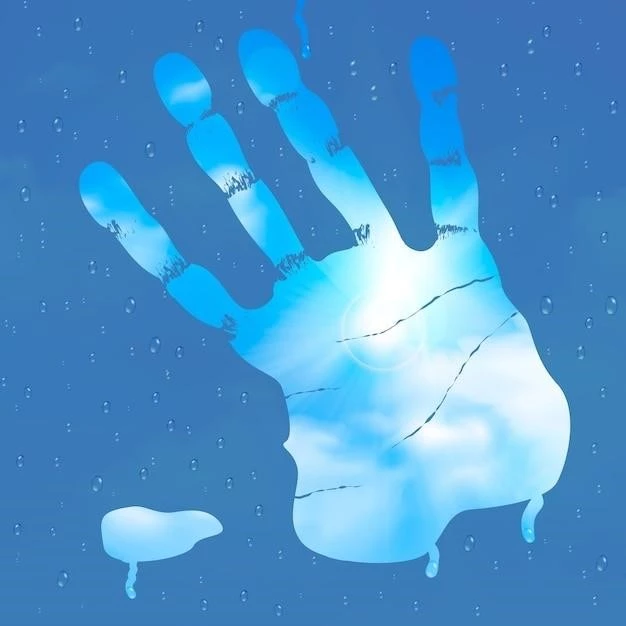Understanding Alien Hand Syndrome⁚ Explore the puzzling phenomenon of involuntary hand movements in this unique condition.
Definition of Alien Hand Syndrome
Alien Hand Syndrome is a rare neurological disorder characterized by the hand acting involuntarily, seemingly having a will of its own. The affected individual experiences a lack of control over the hand’s actions, with it performing complex movements independently. This condition often arises due to damage or abnormalities in the brain’s frontal lobes, corpus callosum, or other areas responsible for motor control and decision-making processes. Individuals with Alien Hand Syndrome may feel as though their hand is acting independently without their consent, making everyday tasks challenging and disrupting normal activities.
Symptoms of Alien Hand Syndrome
Common symptoms of Alien Hand Syndrome include the affected hand making involuntary gestures, actions, or movements without the individual’s intention; These movements may be complex, purposeful, and seemingly independent from the person’s conscious control. The hand may engage in actions such as grasping objects, touching the face, or unbuttoning clothing without the individual’s command. Additionally, individuals with Alien Hand Syndrome may experience feelings of disconnection or unfamiliarity with the affected hand, leading to frustration and difficulty in performing daily tasks. It is essential to seek medical advice if these symptoms interfere with daily life to explore treatment options and management strategies.
Causes of Alien Hand Syndrome
Discover the underlying neurological factors and conditions that contribute to this unique disorder.
Neurological Factors
Alien Hand Syndrome is often linked to brain injuries or conditions affecting the motor regions of the brain, such as strokes, traumatic brain injuries, tumors, or neurodegenerative diseases like Alzheimer’s or Creutzfeldt-Jakob. Damage to the corpus callosum can lead to miscommunication between the brain’s hemispheres, resulting in conflicting signals and involuntary hand movements. Understanding the specific neurological factors at play can help in diagnosing and managing this perplexing disorder effectively. Seeking guidance from healthcare professionals specializing in neurology is crucial to address these underlying causes.
Underlying Conditions
Alien Hand Syndrome can be associated with underlying conditions such as brain tumors, dementia, epilepsy, and neurodegenerative disorders. These conditions can lead to disruptions in the brain’s structure and function, impacting motor control and voluntary movements. Understanding the presence of these underlying health issues is crucial in diagnosing the root cause of Alien Hand Syndrome. Seeking medical evaluation and comprehensive neurological assessments can help identify any coexisting conditions and develop an appropriate treatment plan tailored to the individual’s needs.
Treatment Options for Alien Hand Syndrome
Explore the available medications and therapies to manage this complex neurological condition effectively.
Medication
Medication can be prescribed to help manage symptoms of Alien Hand Syndrome, targeting underlying neurological causes or addressing specific issues like involuntary movements. Drugs such as antiepileptics, antipsychotics, or muscle relaxants may be used to alleviate symptoms and improve hand control. It is essential to work closely with healthcare providers to determine the most suitable medication regimen, as individual responses to treatment can vary. Regular monitoring and adjustments to the medication plan may be necessary to achieve the best outcomes in managing Alien Hand Syndrome.
Therapy
Therapeutic interventions play a crucial role in managing Alien Hand Syndrome. Occupational therapy can help patients learn strategies to regain control over the affected hand through exercises and rehabilitation techniques. Cognitive-behavioral therapy may aid in coping with the emotional challenges associated with this condition, enhancing overall well-being. Collaborating with a multidisciplinary team of healthcare professionals, including physical therapists and psychologists, can provide comprehensive support and guidance in developing a personalized therapy plan. Consistent therapy sessions and active participation are key in improving hand function and enhancing quality of life for individuals with Alien Hand Syndrome.
Famous Cases of Alien Hand Syndrome
Learn about real-life individuals who have experienced unique challenges with this neurological condition.
Case Study 1⁚ Patient X
Meet Patient X, a notable case of Alien Hand Syndrome whose experiences shed light on the challenges and management of this complex neurological disorder. By examining Patient X’s journey, insights can be gained into the strategies employed to address involuntary hand movements and enhance quality of life. Understanding individual cases like Patient X’s can provide valuable lessons for healthcare professionals and individuals navigating the intricacies of living with Alien Hand Syndrome.
Case Study 2⁚ Patient Y
Explore the compelling case of Patient Y, offering a unique perspective on the impact of Alien Hand Syndrome and the coping mechanisms employed to manage its symptoms. By delving into Patient Y’s experiences, valuable lessons can be gleaned on effectively navigating the challenges posed by this rare neurological disorder. The insights gained from Patient Y’s case can provide both healthcare professionals and individuals facing Alien Hand Syndrome with practical strategies and support systems to improve daily living and well-being.
Living with Alien Hand Syndrome
Discover insights on managing daily challenges and finding support while navigating this complex neurological condition.
Challenges Faced
Living with Alien Hand Syndrome presents various challenges, including difficulties in performing coordinated tasks, social interactions, and feeling a lack of control over one’s own body. Individuals may experience frustration, embarrassment, and the need to adapt to a new way of living. Simple activities like dressing or eating can become immensely challenging. Seeking understanding from family, friends, and healthcare providers, exploring coping strategies, and adapting routines can help address the daily hurdles faced by individuals with Alien Hand Syndrome.
Support Systems
Building strong support systems is essential for individuals living with Alien Hand Syndrome. Family members, caregivers, support groups, and healthcare professionals can offer emotional support, practical assistance, and guidance throughout the journey. Creating a safe and understanding environment where individuals feel heard and supported can significantly impact their well-being. Engaging in therapy, joining support groups, and educating loved ones about the condition can enhance coping mechanisms and foster a sense of community. Establishing robust support systems is key to navigating the challenges and uncertainties of living with Alien Hand Syndrome.

Alien Hand Syndrome vs. Split-Brain Syndrome
Learn the distinctions between these two intriguing neurological disorders for informed understanding.
Explanation of Differences
While Alien Hand Syndrome involves an involuntary hand acting independently, Split-Brain Syndrome results from the division of the brain’s hemispheres, leading to disconnected functions. Alien Hand Syndrome manifests in uncontrolled movements, whereas Split-Brain Syndrome showcases distinct cognitive and perceptual differences between the brain’s sides. Understanding these discrepancies is crucial for accurate diagnosis and tailored management approaches. Seeking specialized medical advice and diagnostic testing can help differentiate between these unique neurological conditions effectively.
Coping Strategies for Alien Hand Syndrome
Discover effective ways to manage the challenges of living with this complex neurological condition.
Physical Techniques
Implementing physical techniques like hand exercises, adaptive tools, and sensory strategies can help manage Alien Hand Syndrome symptoms. Engaging in occupational therapy to improve hand coordination and using assistive devices for daily tasks can enhance hand function. Employing sensory cues or constraining techniques may also aid in controlling involuntary movements. Developing a routine that incorporates these physical techniques tailored to individual needs can support individuals in better managing the challenges posed by Alien Hand Syndrome. Consulting with healthcare professionals specializing in neurological disorders can provide further guidance on implementing effective physical coping strategies.
Psychological Support
Seeking psychological support is crucial for individuals with Alien Hand Syndrome to address emotional challenges and enhance well-being. Therapy sessions, such as cognitive-behavioral therapy, can help in coping with feelings of frustration, isolation, or loss of control. Engaging in relaxation techniques, mindfulness practices, or joining support groups can provide emotional outlets and foster resilience. Building a strong support network of understanding individuals, including family, friends, and mental health professionals, can offer valuable emotional support and guidance. Prioritizing mental well-being alongside physical care is essential for effectively coping with the psychological aspects of Alien Hand Syndrome.
